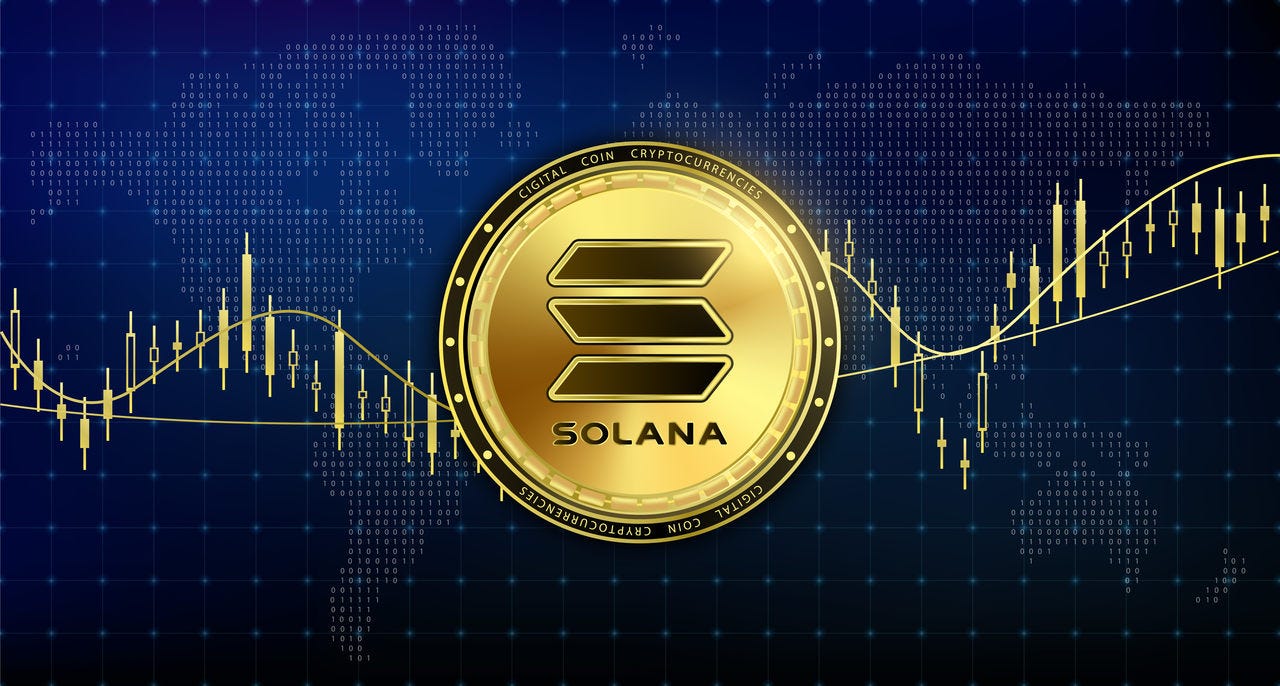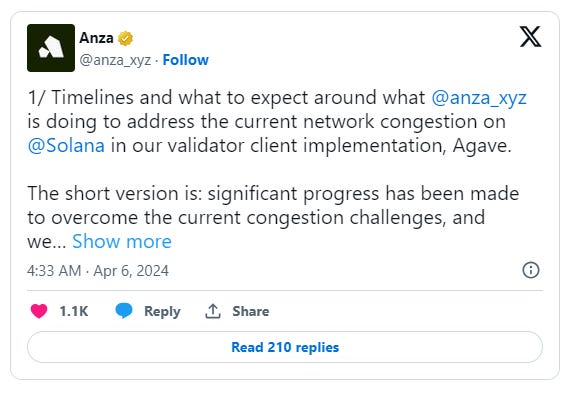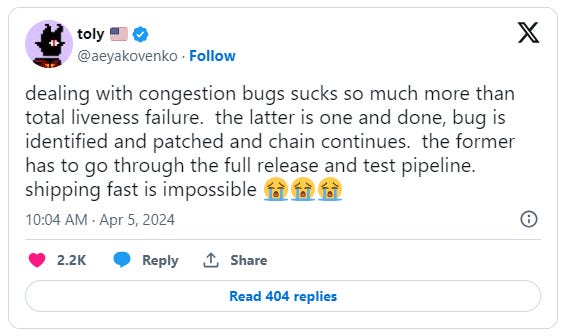- Blockletter
- Posts
- Debunking the Solana Network Scalability Amid Turmoil
Debunking the Solana Network Scalability Amid Turmoil
Unveiling the Solana Network's Scalability Conundrum: Insights into Transaction Failures, Developer Responses, and the Broader Implications for Blockchain Evolution - A Comprehensive Analysis

Solana, known for its efficiency and low gas fees, is grappling with major congestion issues, resulting in a staggering 70% failure rate for transactions. This alarming trend has prompted developers to take action.
The network's co-founder has acknowledged the severity of the problem, highlighting the urgency for solutions. Solana's reputation for speed and cost-effectiveness is now under scrutiny due to these persistent congestion issues.
With nearly three-quarters of transactions failing to go through, developers are rallying to confront the challenge head-on. However, the road ahead appears daunting as they strive to restore the network's reliability and efficiency.
Unraveling the Reasons Behind Solana Transaction Failures
Solana, celebrated for its robust throughput capabilities, has hit a snag lately, resulting in widespread transaction failures. Recent on-chain data from Monday, April 8, indicated a staggering 70% failure rate for non-voting transactions.
Addressing this pressing concern, Anza, a developer collective specializing in Solana, has stepped up to the plate. They've publicly acknowledged the issue and assured users of their active pursuit of a solution. Via a Twitter thread, they linked the congestion to specific implementations of the QUIC internet transport protocol and behaviors of Agave, Solana's validator client.

These challenges are exacerbated under heavy request loads, a scenario Solana has found itself in recently. The surge in memecoin speculation and bot trading has flooded the Solana network with unprecedented traffic, surpassing even Ethereum in transaction volume.
Addressing Solana's Network Challenges: A Test for Developers
In light of the network congestion plaguing Solana, Anza developers have disclosed their active efforts towards solutions. However, recent statements from Anatoly Yakovenko, co-founder of Solana Labs, shed light on the daunting technical hurdles they face.
Yakovenko emphasized the intricate nature of addressing bugs causing congestion, noting that such endeavors are more time-consuming than resolving total network failures experienced previously. These fixes demand meticulous testing, rendering quick solutions unfeasible.

Despite these time constraints, implemented patches are expected to alleviate congestion issues once they're deployed. However, uncertainties loom over the network's capacity to handle escalating traffic and whether incremental improvements can effectively keep pace with its growth.
Examining the Other Side of the Coin
Scalability concerns have long haunted blockchain networks, manifesting in exorbitant gas fees for behemoths like Bitcoin and Ethereum. Despite Solana's relatively low gas fees, scalability lies at the heart of its ongoing transaction failures.
The surge in traffic on Solana can be attributed to two main factors: the frenzy surrounding memecoins and the uptick in algorithmic trading. As these trends continue to drive unprecedented activity on the network, scalability remains a critical challenge yet to be fully addressed.
Significance of Solana's Congestion Issues
The current congestion plaguing the Solana network isn't just a hiccup in its operations; it's a significant lesson for the entire blockchain ecosystem. It underscores the crucial need for resilient network design, ongoing testing, and adaptable development processes to cater to the ever-changing needs of users.
Bottom Line
Solana's recent struggles with network congestion offer a poignant reminder that even the most advanced blockchain systems are not immune to scalability challenges. However, they also present an opportunity for growth and improvement. By addressing these issues head-on and implementing robust solutions, Solana and the broader blockchain community can pave the way for a more efficient and scalable future.